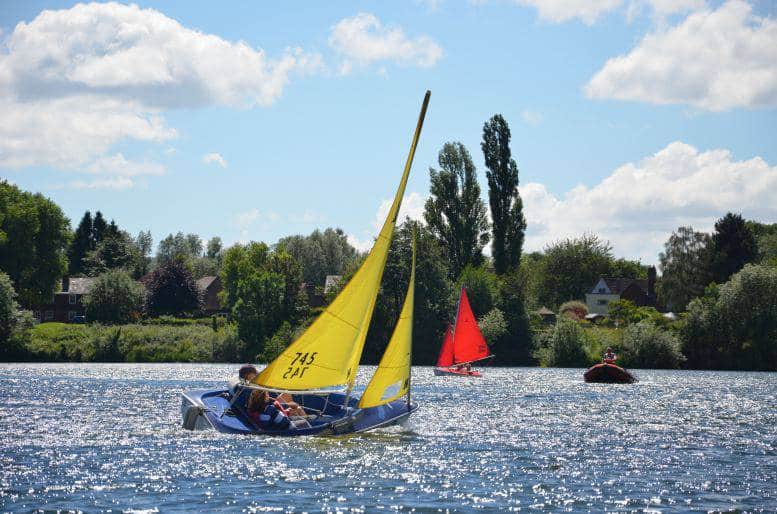A LOCAL charity is providing an inspirational service for disabled people of all ages by giving them the chance to cast off their land-based challenges and set sail for a bright future.
Wealden Sailability operates at Chipstead Lake, near Sevenoaks. It was founded eight years ago by Brian Stanley, 76.
“The charity opens up enormous opportunities to simply enjoy yourself – or to compete against each other,” he explained. “And our age range spans from seven or eight to well into your eighties.
“When we started, we had no money and no boats, just a few enthusiastic guys,” added Mr Stanley, who lives in Brenchley. “But now we’ve got 80 or 90 volunteers and a fleet of 23 boats.
“We can cater for any disability. We’ve got hundreds of clients, we have up to 35 visitors per session from all over West Kent and we take them out twice a week.”
Mr Stanley, who has been sailing for over 50 years, took up the challenge of passing on his knowledge and skills when he retired from the advertising industry.
“It’s been a fantastic experience for me,” he said. “Not only is it rewarding for us but we can pass this knowledge on to others, and it’s great to see them really enjoying it, too.”
Sailability is a nationwide organisation with more than 100 sites around the country, set up by the RYA to encourage participation and also competition.
Sailing allows disabled people of any age to be on a level playing field with able-bodied sailors.
“The beauty is that if you are totally disabled on land, you can still compete against anybody on water,” said Mr Stanley.
There are 10 Access 303Ws and three Access Liberty boats, which are also des-igned specifically to meet the needs of disabled sailors and provide the ideal model for early instruction.
With heavily weighted keels and added buoyancy, the boats are very stable. Movement is not necessary inside the boat and the only controls are a joystick for steering and a rope [known as a sheet] to control the sails.
“One of the Access Liberty boats is equipped with a simple control box which is tiny and can be attached to the clothing of the disabled sailor in the most convenient position,” said Mr Stanley.
“It consists of small toggle-type switches which control both the rudder and the sails. This has proved to be extremely popular for people with very limited dexterity, such as severe cerebral palsy, and allows them the fun and exhilaration of sailing alone. It also enables them to race on equal terms.”
Now the charity wants to add a new boat to the fleet, with sip-and-puff assistive technology which sends signals to the controls using air pressure by ‘sipping’ (inhaling) or ‘puffing’ (exhaling) on a straw or tube.
“This will provide the opportunity for the very disabled to be able to sail independently. The sip-and-puff system has proved to be very successful, even on long-distance trips.
“We want to take this a step further for people with even more disability, who are constantly dependent on others for everything.”








